December 2017: Olive Tree

Volume II/Issue 20/December 2017

From The Editorial Desk:

My Traditional Christmas Story Editorial: The Three Trees
Almost every year at Christmas, when my brother and I were growing up, my mother would tell this story about the Three Trees. I thought I would share it with you this Christmas. Its not a devotion really, and it is not necessarily profound. But it does have a simple truth that I would like to leave with you:
A Tale of the three trees
Once upon a mountain top, three little trees stood and dreamed of what they wanted to become when they grew up. The first little tree looked up at the stars and said: "I want to hold treasure. I want to be covered with gold and filled with precious stones. I'll be the most beautiful treasure chest in the world!"
The second little tree looked out at the small stream trickling by on its way to the ocean. "I want to be traveling mighty waters and carrying powerful kings. I'll be the strongest ship in the world!"
The third little tree looked down into the valley below where busy men and women worked in a busy town. "I don't want to leave the mountain top at all. I want to grow so tall that when people stop to look at me, they'll raise their eyes to heaven and think of God. I will be the tallest tree in the world!"
Years passed. The rain came, the sun shone, and the little trees grew tall. One day three woodcutters climbed the mountain.
The first woodcutter looked at the first tree and said, "This tree is beautiful. It is perfect for me. With a swoop of his shining axe, the first tree fell. Now I shall be made into a beautiful chest. I shall hold wonderful treasure!", the first tree said.
The second woodcutter looked at the second tree and said, "This tree is strong. It is perfect for me." With a swoop of his shining axe, the second tree fell. "Now I shall sail mighty waters! thought the second tree. I shall be a strong ship for mighty kings!"
The third tree felt her heart sink when the last woodcutter looked her way. She stood straight and tall and pointed bravely to heaven. But the woodcutter never even looked up. Any kind of tree will do for me, he muttered. With a swoop of his shining axe, the third tree fell.
The first tree rejoiced when the woodcutter brought her to a carpenters shop. But the carpenter fashioned the tree into a feedbox for animals. The once beautiful tree was not covered with gold, nor with treasure. She was coated with sawdust and filled with hay for hungry farm animals.
The second tree smiled when the woodcutter took her to a shipyard, but no mighty sailing ship was made that day. Instead, the once strong tree was hammered and sawed into a simple fishing boat. She was too small and too weak to sail on an ocean, or even a river; instead, she was taken to a little lake.
The third tree was confused when the woodcutter cut her into strong beams and left her in a lumberyard. "What happened?", the once tall tree wondered. All I ever wanted was to stay on the mountain top and point to God.
Many, many days and night passed. The three trees nearly forgot their dreams.
But one night, golden starlight poured over the first tree as a young woman placed her newborn baby in the feed box. "I wish I could make a cradle for him", her husband whispered. The mother squeezed his hand and smiled as the starlight shone on the smooth and the sturdy wood. "This manger is beautiful", she said.
And suddenly the first tree knew he was holding the greatest treasure in the world.
One evening a tired traveler and his friends crowded into the old fishing boat. The traveler fell asleep as the second tree quietly sailed out into the lake. Soon a thundering and thrashing storm arose. The little tree shuddered. She knew she did not have the strength to carry so many passengers safely through with the wind and the rain. The tired man awakened. He stood up, stretched out his hand, and said, "Peace." The storm stopped as quickly as it had begun. And suddenly the second tree knew he was carrying the king of heaven and earth.
One Friday morning, the third tree was startled when her beams were yanked from the forgotten woodpile. She flinched as she was carried through an angry jeering crowd. She shuddered when soldiers nailed a mans hands to her. She felt ugly and harsh and cruel. But on Sunday morning, when the sun rose and the earth tremble with joy beneath her, the third tree knew that Gods love had changed everything. It had made the third tree strong. And every time people thought of the third tree, they would think of God. That was better than being the tallest tree in the world.
The next time you feel down because you aren't where you want to be in life, sit tight and be happy because God is thinking of something better for you.
Merry Christmas!

The Immaculate Conception
Let us consider the fall of man, which is recounted in the third chapter of Genesis. Let us consider Eve prior to the fall. She like Adam was an immaculate virgin free from original sin. And yet she fell into sin and led Adam also into sin. The a promise was made to Adam and Eve of a Redeemer. Let us consider how this promise is recounted to us: "I will put enmities between thee and the woman, and thy seed and her seed: she shall crush thy head, and thou shalt lie in wait for her heel." (Genesis 3:15) Together with the Redeemer, Who is the Seed, we hear of the woman who the serpent shall lie in wait of her heel. This woman is the Blessed Virgin Mary.
Saint Bernard asks: "Was it not of this thy daughter, O Adam, that God spake when he said unto the serpent, I will put enmity between thee and the woman?" Indeed all of the Fathers of the Church agree that this verse in Genesis refers to the Blessed Virgin Mary.
Saint John Eudes recounts: John of Leyden, Carmelite, in his chronicle of the Counts of Holland, states a remarkable fact, the truth of which is attested by a Doctor in Theology, named John de domo Villarii, an eyewitness of the affair. Writing to another Doctor in Flanders, he declares that in the year 1374, there was found in the valley of Josaphat, a subterranean tomb, wherein lay the body of a remarkably large man, with beard and hair very long. The body was intact. In front of the tomb there was a tablet on which was inscribed in Hebrew the following: 'I am Seth, third son of Adam. I believe in Jesus Christ, Son of God, and in the Virgin Mary, his Mother, who shall be born of my race.'
And so before the flood Mary was already known as we read later on in Proverbs: "The Lord possessed me in the beginning of his ways, before he made any thing from the beginning. I was set up from eternity, and of old before the earth was made." (Proverbs 8:22-3), which is read in the Divine Office for the Feast of the Immaculate Conception.
The Prophet Isaias in (7:14) tells us: "Therefore the Lord himself shall give you a sign. Behold a virgin shall conceive, and bear a son, and his name shall be called Emmanuel."
We know this virgin is Mary and her Son is our Lord Jesus Christ.
When God prescribed the laws governing sacrifices, He ordered that the victims be without blemish. (there are about fifty verses referring to this.) In the fourth chapter of Genesis we read of the sacrifices of Cain and Abel, and throughout Scripture sacrifice was offered to Almighty God, such as the sacrifices offered by Noah after the Ark came to ground. The law of sacrifice comes from the beginning of time.
Adam and Eve were created without sin. Of the Prophet Jeremias (1:5) we read: "Before I formed thee in the bowels of thy mother, I knew thee: and before thou camest forth out of the womb, I sanctified thee, and made thee a prophet unto the nations." Commentators hold that he was sanctified in the womb much as John the Baptist was and freed from original sin.
Now, if God freed Jeremias and John the Baptist from original sin for His own purposes, would He not consider also the woman who is destined to the Mother of God; the woman He has planned from all eternity for this sacred mission?
St. Amphilochus says: "He who created the first Eve free from shame, created the second without spot or stain." Mary was conceived by the grace of God in the womb of her mother Anne without any stain of original sin. This is the Immaculate Conception. The Immaculate Conception was a preparation for our redemption.
Let us listen to the angel Gabriel as he addressed Mary: "Hail, full of grace, the Lord is with thee: blessed art thou among women." (Luke 1:28) Notice he says that Mary is full of grace and the Lord is with her. Elsewhere it is wished to people that the Lord be with you, not is with you.
Mary was indeed ready to be the new Eve to reverse the course Eve set so many centuries before in the garden. However, Mary had to pass a test as did Eve. Let us hear her answer: "And Mary said: Behold the handmaid of the Lord; be it done to me according to thy word. And the angel departed from her." (Luke 1:38) By conforming to Almighty God's will, Mary indeed crushed the head of the serpent.
This act of obedience to the will of God on Mary's part reversed the disobedience of Adam and Eve and she conceived the Redeemer in her virginal womb.
Saint Bernard said: "Wherefore, O Eve, betake thyself to Mary: Mother, betake thyself to thy daughter: let the daughter answer for the mother: let her take away her mother's reproach; let her make up to her father for her mother's fault: for if man be fallen by means of woman, it is by means of woman that he is raised up again."
Saint Epiphanius, one of the Fathers of the Church says: "For Mary is the bridge between heaven and earth, the ambassadress who hath reconciled them in her womb."
The Immaculate Conception is the beginning and foundation of the doctrines concerning the Virgin Mother of God. Although only defined as a doctrine of Faith a little over a century and a half ago, this has always been held to be true by the Church.
Just as the first Adam and the first Eve were created without sin; the second Adam, Jesus, and the second Eve Mary, were also created without sin. The obedience of Jesus and Mary atoned for the disobedience of Adam and Eve.
Let us thank God for the great graces that come to us through Him and the Immaculate Conception.

The Funny Pharmacy
Proverbs 17:22
A joyful mind maketh age flourishing: a sorrowful spirit drieth up the bones.





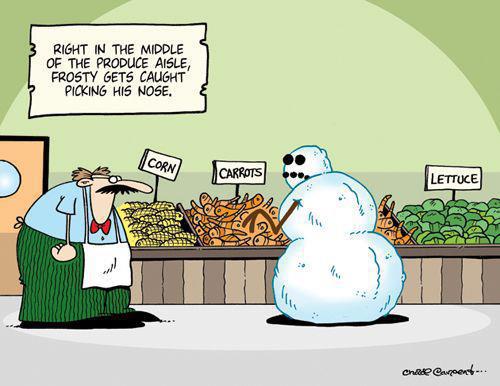


Is it your opinion that a priest can never effectively recant from celebrating the Novus Ordo mass and regain non heretical status?
No, a priest can return to the Church by renouncing his heresy, and seeking absolution from the Pope. He must approach either the Pope or his Local Ordinary (Bishop), who can absolve him from excommunication. However, only the Pope can restore such a man to functioning as a priest again.
Were the specific pronouncements made by Vatican II were also heretical in total? Or, only selective pronouncements or documents? If only selected ones, why?
No, parts of Vatican II may not be heretical.
To answer the second question, Pope Pius VI issued the decree Auctorem Fidei to condemn the errors of the Jansenist Synod of Pistoia. He extracted the errors and then condemned them. Some of the propositions may not have been heretical or even erroneous, as heretics do not reject all doctrines, only some of them.


“Christ is born, glorify Him! Christ came from Heaven, welcome Him! Christ is on earth, exult! Sing to the Lord all the earth, Joyfully praise Him all you nations, For He has become glorious!”
St. Gregory Nazianzen began one of sermons on Christmas with these inspiring words. How many of us are inspired like St. Gregory was inspired? Or would the opposite be true to point out how many of us are “worn out” or “exhausted” by the time Christmas gets here? Let’s face it, the days and weeks leading up to Christmas are busy, busy, busy. With all the Christmas shopping in full gear. With all the wrapping of presents. With all the Christmas decorating of the Christmas trees. With all the decorating of our homes, our offices, our workplaces. With all the Christmas parties. The month of December leading up to December 25th is very tiring, to say the least. Unfortunately, most of the “hustle and bustle” described above in regards to the Christmas season has been hijacked by secular society. Most people in our society are more apt to think of “Santa Claus,” “Frosty the Snowman,” or “Rudolph the Red-Nosed Reindeer” when they think about Christmas than they are to think about the Divine Child born at Bethlehem. If you ask the average person what Christmas means to them, how many would respond back talking about getting expensive gifts and “Rudolph” and “Santa” and other secular things associated with Christmas. Thus, the question remains as to how to best celebrate the reality of Christmas. The simple answer to that is to “return to the source.” Of course, the “source” is the original Christmas and the Birth of the Divine Infant.
What does Scripture have to say about this Miraculous Event? St. Luke gives us the answer.
“Now it came to pass in those days, that there went out a decree from Cesar Augustus that all the inhabited earth should be registered. This registration was first made when Quirinius was governor of Syria. And all went to be registered, each one to his own city. Then Joseph also went up from Galilee, out of the city of Nazareth, into Judea, to the city of David, which is called Bethlehem, because he was of the house and family of David, to register himself with Mary, who was betrothed to him, being with child. Now it came to pass, while they were there, the days were fulfilled for her to be delivered; and she brought forth her son, the firstborn, and wrapped Him in swaddling clothes, and laid Him in a manger, because there was no place for them in the inn.” (St. Luke 2:1-7)
Welcome Him!
When I preach during the Advent season, I like to remind those listening that Advent is a time of preparation. Think about the times in which you invite friends or family to your home. What do you do before they arrive? You straighten up your home . . . . Vacuum . . . sweep . . . organize . . . . In other words, you clean and make your house presentable. You also make yourself presentable for the occasion by wearing something nice, I would imagine. You do these things not only because you want you and your house to look good for your guests but also to show respect and honor to your invited guests. You want to do your best to make your guests feel welcome and at home. Spiritually speaking, this is how we should regard Advent: a time to prepare our hearts for the coming of the Christ Child. During the weeks before Christmas how many of us put up lights . . . . decorate the tree . . . . put up Christmas decorations? We prepare our homes for the coming holiday season, specifically Christmas. And yet how many of us can truthfully say that we prepare our hearts for Christmas? We read in the Old Testament, “And Samuel said to the whole house of Israel, ‘If you are returning to the Lord with all your hearts, then rid yourselves of the foreign gods and the Ashtoreths and commit yourselves to the Lord and serve Him only, . . . . “ (1 Samuel 7:3) Just like cleaning and preparing our homes when we have a guest, so too do we need to prepare our hearts for God. We do this through taking time out of our busy schedules and dedicate time to God through prayer, meditation, reading Scripture, and going to church.
Exult! Sing to the Lord!
When Our Blessed Saviour was born, the Jewish people were hoping and praying that the Messiah would come to deliver them. Well, the Messiah did come to them but not as they had expected. The Messiah arrived in the form of a small, innocent Baby born in a stable because there was no room for Him elsewhere. The Jews were expecting the Messiah to arrive as someone powerful and mighty to deliver them. They never expected the Messiah to be born as a small, innocent child. So many people totally missed this coming of the Messiah because they were looking for someone totally different. They were expecting something totally different. So, too, today how many people miss the real reason for Christmas because they are looking for something totally different? Instead of focusing on the Christ Child at Christmas, how many of us focus on the number of gifts we will receive and/or give? How many of us focus on the Christmas parties and dinners we will attend? How many of us focus on the lights and the decorations and totally miss the reason for the lights and the decorations? As Christians, we are called to dedicate our lives to Christ . . . to follow Him . . . . emulate Him . . . to serve Him. There is nothing wrong, in my humble opinion, with lights, and trees, and decorations, and Christmas songs, etc. as long as we keep the true meaning of Christmas behind doing all these things. The world does such a good job at distracting us . . . not only at Christmas time . . . but all year long. It is the job of the devout and faithful Christian to avoid the distractions as much as possible and to always focus solely on doing God’s will in our life. We should learn a valuable lesson from the shepherds who were present for the Birth of the Divine Child.
“And there were shepherds living out in the fields nearby, keeping watch over their flocks at night. An angel of the Lord appeared to them, and the glory of the Lord shone around them, and they were terrified. But the angel said to them, ‘Do not be afraid. I bring you good news of great joy that will be for all the people. Today in the town of David a Saviour has been born to you; He is Christ the Lord. This will be a sign to you: You will find a baby wrapped in cloths and lying in a manger. Suddenly a great company of the heavenly host appeared with the angel, praising God and saying, ‘Glory to God in the highest, and on earth peace to men on whom His favor rests.’ “ (St. Luke 2:8-14)
So often our hearts are filled with joy when we receive beautiful presents at Christmas time . . . presents that we had hoped to receive. We must always remember that God has given the world the most wonderful present of all . . . . His Son born as a human being. God gave His Son to the world to show the world how much God loves us. He gave His Son to the world to save us from our sins. Let us always acknowledge how much God loves us by giving us His Son. Let us never disregard or ignore this Precious Gift.


The Pope Speaks: December 2017
What Is a Hero?
As We were flying down the road toward home the other day we got to thinking. Many people today are on a super highway. They are flying along at 80 to 90 miles an hour, but where are they going? There are many exits to this highway, but these are ignored. Soon we top a hill and see a large pile of cars in front of us, but it will be too late. We are simply traveling too fast and will crash into this pile of cars.
This pile of cars is hell, where we all will spend eternity if we do not stop, think and then do things differently than we are.
The road to heaven is not always the easiest to travel, but it is a beautiful road.
Stop and think what you see along the side of a super highway? Is there anything to really LOOK at? Instead, think what one can see by taking the back roads. There is scenery in most places.
But let us not get side tracked by getting onto the road some people get on. This road is a mile to three miles long and runs around in a circle. One person we know calls it the "round a round", because it is truly a road that goes nowhere. Men will happily spend their afternoon driving around this road at breakneck speeds, while millions more will spend their afternoons watching them do it. And yet, how many of us will spend any time in studying the atlas of life, that is spiritual reading and catechism? Some of us are on this road to nowhere whereas the rest are on the super highway to hell. It is time to take the exit and get on the road to heaven.
And let Us begin with a true story. There was a woman who lived in World War II Germany. She was married with two children, a girl and a boy. During the last years of the war and the early part of the American occupation, food was short. So this woman fed her husband, so he would have strength to go out to work and earn money to support the family and then her two children. When food was short, she cut her own ration back. In fact, during three to four years, she so deprived herself that she lost her mind due to malnutrition. Indeed, this woman is a hero, for she fulfilled her duty, even sacrificing herself in the process. We all could and should learn from this woman's heroic self-sacrifice.
We can look at the heroes throughout the centuries. Let us first ask our self, who we consider heroes. Next we must ask our self why we consider them heroes? When one analyzes this it becomes immediately apparent that all heroes have one thing in common, self-sacrifice. The self-sacrifice can be a momentary thing, such as the story of a pro-football player who died while rescuing two drowning children some years back. He was successful in rescuing the children, but was unable to get himself back out of the pond. Others live whole lives of self-sacrifice like the mother above. However, these heroes are remembered for their act(s) of self-sacrifice.
My friends, we are all called to be heroes. Jesus says: "Greater love than this no man hath, that a man lay down his life for his friends." (John 15:13) And Jesus gave us The example on Calvary. This may be one reason why the Saints, the true heroes, tell us to meditate often on the Passion. Jesus also says: "This is my commandment, that you love one another, as I have loved you." (John 15:12)
All should be familiar with Saint Augustine's book, "The City of God". In his book he wrote this to explain two cities. The City of God is that of the heroes, who follow the path of self-sacrifice. The other city is the City of Satan, which follows the maxims of the world, the flesh and the devil. Each has its own doctrines. Jesus also makes this division, but He makes it quite clear: "He that is not with Me, is against Me; he that gathereth not with Me, scattereth." (Matthew 12:30; Luke 11:23) So, if we are not citizens of the City of God, then we are citizens of the City of Satan. If we do not follow the path of self-sacrifice Jesus has shown us, then we are following the path of self-indulgence and selfishness, which the devil teaches us to follow.
Take out the examination of conscience, which can be found in most prayer books and missals. Mark down all of the self-indulgent things we do. Then let us consider how we spend our time and how many acts of self sacrifice we do in a week. We will find we have several pages of self-indulgence and a 3x5 card is more than enough to mark our self-less actions. We are entering the season of Advent. Let us make this a little lent and get off of the super highway to hell and on to the road to heaven.

Living Catholic:
3 Consequences Of Rejecting Authority
The man that with a stiff neck despiseth him that reproveth him, shall suddenly be destroyed: and health shall not follow him. (Proverbs 29:1)
If we continue to reject the reproofs of the authority God has put in our lives, He warns that there will be irreparable damage to the potential in our lives.
Examples of 3 Phases of Loss In Rebellion
Scripture records that on three major occasions King Saul rebelled against the word of the Lord, and on each occasion there was a specific consequence.
1. His children would lose the heritage they could have had.
(I King 13:13-14 Douay Rheims) And Samuel said to Saul: Thou hast done foolishly, and hast not kept the commandments of the Lord thy God, which he commanded thee. And if thou hadst not done thus, the Lord would now have established thy kingdom over Israel for ever. But thy kingdom shall not continue. The Lord hath sought him a man according to his own heart: and him hath the Lord commanded to be prince over his people, because thou hast not observed that which the Lord commanded.
When we rebel against the disciplines of the Lord, we fail to learn the spiritual insights and character which God intended. Thus, we are not able to pass these on to our children.
2. His own ministry would suffer.
(I King 15:28) And Samuel said to him: The Lord hath rent the kingdom of Israel from thee this day, and hath given it to thy neighbour who is better than thee.
The very lack of character and wisdom which we have due to rejecting authority will greatly diminish the potential which our own ministry could have had.
3. His physical Life would be shortened.
(I King 28:9) And the Lord also will deliver Israel with thee into the hands of the Philistines: and tomorrow thou and thy sons shall be with me (The soul of Samuel was speaking to him ): and the Lord will also deliver the army of Israel into the hands of the Philistines.
The Church teaches a direct correlation between obedience to God and a long and healthy life:
(Ephesians 6:1-3) Children, obey your parents in the Lord, for this is just. Honour thy father and thy mother, which is the first commandment with a promise: That it may be well with thee, and thou mayest be long lived upon earth.
(Proverbs 3:7-8) Be not wise in thy own conceit: fear God, and depart from evil: For it shall be health to thy navel, and moistening to thy bones.
(I Corinthians 11:27-32) Therefore whosoever shall eat this bread, or drink the chalice of the Lord unworthily, shall be guilty of the body and of the blood of the Lord. But let a man prove himself: and so let him eat of that bread, and drink of the chalice. For he that eateth and drinketh unworthily, eateth and drinketh judgment to himself, not discerning the body of the Lord. Therefore are there many infirm and weak among you, and many sleep.
The root of the unworthiness was rebellion. Any unworthiness before God is because of rebellion in our lives. And because of this rebellion there were some who became sick and some even died because while in rebellion to God they partook of the body and blood of Christ.
- The way a child responds to his parents' authority will soon be the way he or she will respond to them when they are teenagers. The way a teenager responds to his parents' authority will be the way he responds to God's authority.


Catechism Catch Up!
On Our Redemption and What it Means-Article 5
1 Peter 1:18-21
Knowing that you were not redeemed with corruptible things as gold or silver, from your vain conversation of the tradition of your fathers: But with the precious blood of Christ, as of a lamb unspotted and undefiled, Foreknown indeed before the foundation of the world, but manifested in the last times for you, Who through him are faithful in God, who raised him up from the dead, and hath given him glory, that your faith and hope might be in God.
The word that I want to focus on here is the word "redeemed." That is part of the heart and soul of Catholicism, redemption. The Churches message is a message of redemption. When we present the gospel, we should present it with redemption being the center of our presentation. It's one of the great words, it's one of the great titles of Christ, Christ our Redeemer. The question is whether or not we really understand the fullness of the word redemption.
In the past, even today, We cry out against the immorality in our government and in our culture. We are concerned with the culture of death as we see babies brutally murdered. We stand for hours with our posters waving in the air against such slaughter.
We are appalled by the destruction of the family. Starting with divorce all the way down to the homosexual life styles, sexual neutrality, and marriage going beyond the man and woman.
We think if we speak out against these thing in our country and pass legislation against these immoral things that we can convert our country back to when there was a Godly morality.
But our responsibility is not to moralize the unconverted, it's to convert the immoral.
Our responsibility is redemptive, not political. We do not have a moral agenda. We have a redemptive agenda. And none of us should be surprised that we couldn't...we couldn't reform the kingdom of darkness ruled by Satan himself. Our message is not morality, it has never been morality, our message is redemption. That has always been and always will be the pure and true message of the Church. And I hope that people who have literally spent their time and millions upon millions of dollars trying to moralize the unconverted will now turn their attention to trying to convert the immoral. And at the heart of this matter is the understanding of redemption. It's a great word. It's a word not often used and not fully understood.
I remember when I was a little boy I read a book, a little book that left a deep impression upon my mind. It was about a little boy who made a little boat. He got some pieces of wood and he kind of carved them out and glued them together and made a little boat and put a little mast on it and made a little sail and attached it to the boat and worked very hard with his little tools and produced what to him was a very special little sailboat, and painted it up the way he wanted it. Went down to the lake nearby to sail it. It was carried along, however, by a strong breeze and eventually got beyond his reach and then it went out of sight. He was sad about losing this little prize of his own craftsmanship. And later walking through the little town he lived in he noticed it was for sale in the window of a shop. He went in and told the shopkeeper that it was his and he tried to lay claim to it. The shopkeeper did not believe him, however, and the man behind the counter demanded that if he wanted it he'd have to pay for it. He'd have to buy the very boat that he had made with his own hands. He went home, broke open his little piggy bank and found that he had just enough money. So he returned to the shop, put the money on the counter and bought back his little boat. It was surely his then, twice his, he said, because he not only made it but he redeemed it.
Made by the Creator and then redeemed by the Creator. That's really the story of Catholicism, isn't it? And that's St. Peter's theme in the passage and it's the theme of our faith. Our message is redemption. One of my favorite words in scripture is "redeemed." It may not be often used among Catholics, but it should be. We should refer to Jesus Christ much more frequently as our Redeemer, thus exalting this wonderful aspect of His saving work.
It has been said, "Great was the work of creation, but greater the work of redemption.
It cost more to redeem us than to make us. In the one there was but the speaking of a word. In the other there was shedding blood. The creation was but the work of God's fingers. Redemption is the work of His arm,".
It's true. Redemption is the greater work. The Lord Jesus, pointed us to this work of his when he says "For the Son of man also is not come to be ministered unto, but to minister, and to give his life a redemption for many." (Mark 10:45). Redemption is more specific than salvation. It speaks of the heart and soul of salvation. It focuses on the fact by which salvation is achieved. Redemption has to do with the purchase by payment of a price. Redemption then focuses on how God bought us from our bondage to sin...how God paid the price. It views man's condition as a prisoner, a prisoner to sin and iniquity and sees God coming to set the prisoner free by paying the full required price.
Sin calls for justice. Justice demands a price. The price justice demands is death. Redemption then of the sinner must come through death.
The imagery shadowing Saint Peter's words here comes from Exodus chapter 12. This scripture passage is so basic to our understanding of redemption.
"And the Lord said to Moses and Aaron in the land of Egypt: This month shall be to you the beginning of months: it shall be the first in the months of the year. Speak ye to the whole assembly of the children of Israel, and say to them: On the tenth day of this month let every man take a lamb by their families and houses. But if the number be less than may suffice to eat the lamb, he shall take unto him his neighbor that joineth to his house, according to the number of souls which may be enough to eat the lamb."
In other words, have a lamb that is consumed by two families if families are too small to consume one full lamb. "And it shall be a lamb without blemish, a male, of one year: according to which rite also you shall take a kid. And you shall keep it until the fourteenth day of this month: and the whole multitude of the children of Israel shall sacrifice it in the evening. And they shall take of the blood thereof, and put it upon both the side posts, and on the upper door posts of the houses, wherein they shall eat it. And they shall eat the flesh that night roasted at the fire, and unleavened bread with wild lettuce. You shall not eat thereof any thing raw, nor boiled in water, but only roasted at the fire: you shall eat the head with the feet and entrails thereof. Neither shall there remain any thing of it until morning. If there be any thing left, you shall burn it with fire.
And thus you shall eat it: you shall gird your reins, and you shall have shoes on your feet, holding staves in your hands, and you shall eat in haste: for it is the Phase (that is the Passage) of the Lord. And I will pass through the land of Egypt that night, and will kill every firstborn in the land of Egypt both man and beast: and against all the gods of Egypt I will execute judgments: I am the Lord. And the blood shall be unto you for a sign in the houses where you shall be: and I shall see the blood, and shall pass over you: and the plague shall not be upon you to destroy you, when I shall strike the land of Egypt. And this day shall be for a memorial to you: and you shall keep it a feast to the Lord in your generations with an everlasting observance.”
Now that describes God initiating the Passover. Let me give you a little bit of background around that passage. One of the patriarchs of Israel, Joseph, mentioned, of course, in Genesis, had been sold into slavery in Egypt by his brothers. He then became Prime Minister of Egypt alongside the Pharaoh. During a severe famine in Israel, the family of Jacob, Joseph's father, came to Egypt to survive. There was food in Egypt but not in Israel. When they came into Egypt, these Hebrew people began to dwell there. They were keepers of livestock so Pharaoh gave them their own section of land, it was called the land of Goshen. They lived there and raised their crops and their herds there and they began to multiply. In fact Exodus 1:7 says the children of Israel were fruitful, increased abundantly, multiplied, waxed exceeding mighty and the land was filled with them. They literally had explosive growth. They reached the proportion of several million people, Hebrew people living in the land of Egypt. Their status, however, began to deteriorate as they began to grow. They were seen as a threat. And so eventually, of course, they became slaves.
Pharaoh became jealous of these Jews in his land. Fearing them because they had become so powerful and were so blessed by their God. So he decided to turn them into slaves, forced them into making bricks for his great buildings that he was building. However, this slavery made them stronger and their numbers continued to increase. Eventually it was God's time to call them out of Egypt to take them to the Holy Land and establish them as a nation. After 400 years of Egyptian exile God began to move. The Pharaoh who was cruel and who hated the Hebrews and yet was greedy for their slave labor wouldn't release them. You remember Moses said, "Let my people go," and Pharaoh refused to do that, so God unleashed on Egypt plague after plague, a series of ten plagues culminating in the final plague which was the supernatural execution of the firstborn animal and the firstborn in every family. This is a cataclysmic judgment. The firstborn in the family was the heir to everything the family possessed, the favored child. The tragic judgment resulted in Egypt letting the Israelites go and several million people exited Egypt, you remember, the story of them crossing the Red Sea and Pharaoh then changing his mind, chasing them and having his entire army drowned. But the death angel was going to move through Egypt and slay the firstborn child in every house...an unthinkable judgment on this vast race of people. In order for the Hebrews to be spared this divine death of the first born, this death angel, God instructed them to kill a lamb or a kid, it could be a goat, of the first year without a blemish, without a spot, offered as a sacrifice to the Lord and splatter its blood around the door at the top and on the sides, so the death angel could see the blood and know that they had obeyed God and offered a sacrifice and spare the firstborn.
Now follow the thought. The lamb's life was given in place of the life of the firstborn.
The lamb died as a substitute. It is a substitutionary death, that paid the price God required and redeemed the firstborn from death. It would be hard to imagine the busyness of that time, the busyness of the preparations, the activities of the families as two weeks ahead of time they get this lamb, they bring it into the house, they live with that lamb, they begin to understand what's going to happen. This lamb that they come to know as a household pet is going to be the substitute that's going to die in place of the firstborn. the firstborn is then going to be ransomed by the bloody death of the lamb. These front doors were literally a wash in blood on that night, giving some kind of a picture even of the cross on which the future, final Lamb would be slain. It was the blood then that redeemed the family from divine judgment.
It was the death of a lamb that paid the price to satisfy God and the angel passed by.
As evening came those people gathered around the table, they had their sandals on, they had their loins girded which means they were ready to move. They had the belt cinching their garments together, they weren't in a relaxed position. They had their staffs in their hands ready to walk and hike. They were ready to move. They ate quickly, hastily in order to leave that night because that's exactly what was going to happen. As soon as all these people started dying all over Egypt as this divine death angel started executing them, the Egyptians it says in Exodus 12 were urgent among the people that they might send them out of the land in a hurry for they said we'll all be dead. And so they had to move immediately that night.
God thereby had decreed that this passover would be celebrated every year since that time, and it has, as a memorial to remind Israel that they were delivered from judgment through a lamb who died in their place and paid the price to ransom them...a redeeming, ransoming substitute. That then, of course, becomes the dominant theme of the Old Testament sacrificial system. And throughout the years of the Old Testament, even into the life of Christ in the New Testament, millions and millions and millions of lambs were slain in this blood-letting sacrifice which pictured substitutionary death which was a price paid to ransom sinners. That's what was behind Peter's words. Now look at what Peter says in 1 Peter chapter 1, "Knowing that you were not redeemed with corruptible things as gold or silver, from your vain conversation of the tradition of your fathers: But with the precious blood of Christ, as of a lamb unspotted and undefiled, Foreknown indeed before the foundation of the world, but manifested in the last times for you, " All of that imagery finds its way to the cross and we are redeemed by the Lamb of God who takes away the sin of the world. The ransom price required by God was death...the ransom price required by God was death. And the Lamb died to pay the ransom price, it was the Lamb's death for our life. He died that the death angel might pass us by. The word "redeemed" by the way, just as a note there in I Peter 1:18, alutroo or lutroo, this form of it, alutrothete means to be set free by a ransom paid. The noun form means a ransom. It's a technical term for a price paid to buy back somebody headed for judgment, to buy back particularly a prisoner of war or to buy a slave's freedom. To understand the Christian faith then is to understand redemption, ransom, substitutionary death, that's what we must understand.
Four questions Peter answers here, just briefly:
Question number one:
what were we redeemed from? In the case of the Passover which I read out of Exodus, they were redeemed from divine judgment, from death, from execution at the hands of the death angel. What were we redeemed from? We were redeemed from sin.
When talking to some one about there need for Christ, the first thing that's necessary is to discuss sin.
We have to understand the human predicament. We are sinful and we are headed for death, physical and eternal. Look at Genesis chapter 6. God looked at the wickedness of man and saw that every imagination of the thoughts of his heart was only evil continually. Our motives are corrupt, our desires are corrupt. From the depths of our heart the imaginations of our mind are wicked. St. James talks in 1:15 about concupiscence (lust) conceiving and bringing forth sin. We are fundamentally wicked. We have deeper than our thoughts, down deeper than our conscious thoughts, we have these hankerings, these cravings, these longings for what is wrong and what is evil. We are a flesh-controlled person. Down deep in us there are cravings to lie, cravings to fulfill our sinful passions. These distortions deep in us lead to sins of all kinds being conceived in our minds. Again I say our concupiscence in some ways are deeper than our thinking. They rise into our minds and they are expanded into imaginations and fantasies that then give birth to sin which produces death. We are morally corrupt deep down, that's why trying to moralize unconverted people is futile. All you can do at best would be turn them in to hypocrites.
Secondly, our sinfulness is defined for us in I Peter 1:14 not only as concupiscence which were yours, but he adds, "In your ignorance."
Not only are we sinful morally, we're sinfully intellectually. That is to say we are ignorant of of God's law.
We are ignorant of God's law, ignorant of God's standards. We cannot know God. That is to say we cannot get to know God. We can know there is a God but to get to know him and truly understand what he desires, we are ignorant of these things. The natural man doesn't know the things of God, they are foolishness to him. St. John 17:25 Jesus said, "the world hath not known thee;" we don't know God, we don't understand His truth. We don't therefore have enough information to live as we ought to live. We are characterized in Romans 1:28 as having a reprobate sense, as being driven by the concupiscence of the flesh, the concupiscence of the eyes, of the pride of life coming out of those evil hankerings and having no restraining knowledge of God in our minds. We are ignorant, we have no complete knowledge of God. So we are sinful morally and we are sinful intellectually.
Thirdly, he talks about how sin effects us socially.
I Peter 1:18 he says, "you were not redeemed with corruptible things as gold or silver, from your vain conversation of the tradition of your fathers:" The word vain means empty, better yet, valueless. We would like to think, that we're making great contribution to humanity, that we're making a great contribution to the world and great contribution to people around us and we have some social benefits to lay on the world we influence. The truth of the matter is we are meaningless, we are powerless, we are pointless, we are valueless. All is, as the writer of Ecclesiastes says, "Vanity, vanity, vanity, nothingness, nothingness, nothingness." Socially we make no difference over the long haul. Our life is empty as far as having any value to anyone else, any real spiritual, permanent, eternal value. So, we in definition from this text are sinful morally, intellectually and socially. We could add one more, religiously. We are lost even though we're religious. Verse 18 says that we were not redeemed with perishable things from our futile way of life, then this, "traditions of your fathers." What that simply means is it's just referring to what tradition was passed down to us. In the case of St. Peter he was from a Jewish environment, he would be looking at apostate Judaism and he would say, "Your religion was corrupt because you were an apostate Jew." If he was talking to Gentiles he would say, "Your religion was corrupt, your religion of paganism, you were involved in pagan religion and that was in evidence of your degenerate sinfulness." Morally, intellectually, socially, religiously, every way you look at it, we're sinful without the working of Christ in our lives. Our morality is not what is acceptable to God. Our minds aren't acceptable to Him. We can't attain to Him. Our social impact is zero and our religion is a damning religion. This is the state of our sin. It is pervasive. We are fettered. And when you ask people today, how do people usually define it? Gambling, drinking, committing acts of sexual sin. It's far more than that, that's sort of superficial. when you look at the Scripture's definition of sin it makes plain that we are in a prison cell and the prison cell is primarily that of alienation from God. And there's no jail break for us by our own hands. We are separated from God with the coils of a twisted self. Our self is tortured into ugly shapes of conceit and fear, resentment, rebellion. It's a slavery too terrible, too tyrannical for us to ever extract ourselves.
And so we are in desperate condition. The punishment for this is damnation.
The condition of unredeemed man is so pervasive it totally engulfs him and there's absolutely nothing he can do about it and God has promised to judge him for it. He is degraded. He is defiled. Once a companion in the Garden of God he is fit only now to have fellowship with devils and demons. His flesh is filthy. His body is stained and need of cleansing. Its members and faculties are given to unclean thoughts and words and actions. There's no part of him that is fit for union with God. The Scripture says his tongue is deceitful, his lips are poisonous, his throat is like an open tomb, his eyes are full of adultery and pride, his ears are deaf to God's voice and truth, his hands do evil and his feet are swift to shed blood. His mind is depraved and reprobate. His heart is desperately wicked. His will is unrepentant and hard. He resists God. He refuses life. His conscience is evil. That's pretty comprehensive stuff. It's not one faculty that sin has defiled, but like a strong poison it soaks in and eats through everything we are and man therefore is left in this utter darkness, darkened mind, groping, unable to comprehend the light, walking in all kinds of wickedness, doesn't know where he's going, stumbles, doesn't know why he stumbles or how to get up. And you can see the desperation. It is from that that he needs to be redeemed. That's what we were redeemed from.
Third question...what were we redeemed with?
Again I Peter 1:18, not with silver and gold, not with any perishable commodity, not with any decaying commodity, this isn't some ransom price that could be used in an earthly environment such as you would read about back in the thirtieth chapter of Exodus. This isn't some earthly ransom. There is no coinage. There is no human wealth. There is no earthly commodity that can pay the price. So, verse 18 says, "We were redeemed with precious blood," that means death, the death of someone precious, the death of a precious Lamb, an unblemished spotless Lamb. Blood is a vivid way to describe death, the sacrificial death was the price paid. Now that should not surprise us because we know if we know the Old Testament that that's the way God designed it. That there needed to be a sacrificial substitute to pay the price of redemption, to pay the ransom to God. It takes the death of a spotless Lamb without blemish who is precious. And who is it? I Peter1:19 says it's Christ. That's why John the Baptist looked at Jesus when He came down to the Jordan River and said, "Behold the Lamb of God who takes away the sin of the world."
And that answers the fourth question...who were we redeemed by?
The answer is Christ. We were redeemed with blood, the death of a sacrificial Lamb. Who was it? It was Christ. He's the perfect, spotless, unblemished sacrifice for sin. He's the one more precious than any who ever lives, more valuable than any other who ever walked on this earth. It was His precious life that was given for us. He died on the cross to pay our ransom price, to satisfy the justice of God, the person of Jesus Christ.
Peter not wanting to just leave it at that shows why Christ was so precious, or how He was so precious. Verse 20 says, He was "Foreknown indeed before the foundation of the world"
That word “foreknown” in the latin is the word “praecogniti” which translated into English can be the word “diagnosed” That is to say God Foreknew that Adam and Eve would give into Satan's temptation and would fall even from before the foundation of the world. He then “diagnosed” the problem which was sin entering into the world. He saw what it would do Man and Creation. So he prepared a remedy, even before the foundation of the world. That remedy was Jesus Christ the Lamb of God, the Redemption Price for us and his creation.
He came into the world as a Lamb, foreknown, incarnated (in flesh) as a Ransom as a Redeemer.
St. Peter emphasizes in 1:21 that He was raised from the dead. This was a divine affirmation that His sacrifice was complete and perfect. And then it says God not only raised Him from the dead, verse 21, but He also gave Him glory. That's His ascension. Who is the Lamb? It is Christ, the One who lived before time and was foreknown from eternity to be the sacrifice, the One who was incarnate, virgin born, came into the world, died on the cross. The One who then was raised from the dead and followed that up with an ascension into the glories of heaven...the foreknown, incarnated, risen, ascended Christ, the most precious person ever, died to purchase our redemption.
Final question...what were we redeemed for?
Well, first of all, verse 20 says, at the end of the verse, "manifested in the last times for you" for you. All of this is for us. What does it bring to us? It brings to us ,(verse 21,) the “faithful in God”, what we need to be able to have “faith and hope in God”.
This just shows that the faithful in God, those who have faith and hope in God, are in fact linked to God. He is the One we trust. He is the One in whom we hope. He is our life. We live in faith. We live in hope in our God. That's what redemption does, it brings you to God. And all your trust is in God and all your hope is in God both in time and eternity. This is redemption. This is our message.
If you're going to talk about the good news of the gospel:
- Talk about sin- We are all born into this world sinners.
- Then talk about substitution- And when you talk about substitution talk about the ransom price paid by Christ as the Lamb who died in our place to satisfy the justice of God.
- And then talk about submission- Making Christ Lord of our lives.
Sin, substitution and submission, talk about the fact that you must come to God submitting by repenting of your sins and being baptized and embracing Jesus as Lord in your life to receive the gift of salvation. That's the gospel.
As we come to the altar at Mass, what is happening there so vividly shows this whole matter of redemption. The bread becomes His body given for us. The cup of wine becomes His blood shed for us. This is the heart of our faith.
Let me ask you this question? Most of you are already baptized Catholic. But as a teen or an adult when you were able to make a personal decision for yourself, have you fallen away from the graces that baptism and confirmation gave you? Have you been living your life for yourself? Come back to Christ and His Church. Go to confession and repent of your sins. Accept the redemption gift that God has reserved just for you.
(For more Catechism Lessons go to Traditional Catechism Web Site)


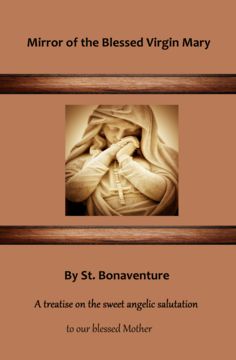
Mirror of the Blessed Virgin Mary
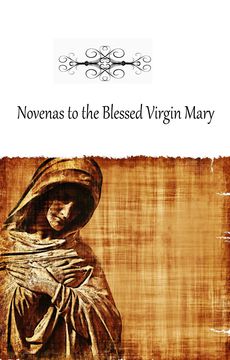
Novenas to the Blessed Virgin Mary
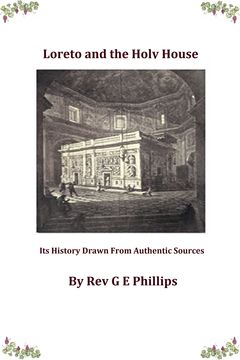
$14.95 $13.99
In reply to a petition made to him by the Bishops of the Province of Piceno, in which Loreto stands, our Holy Father Pope Benedict XV. has issued a Decree, dated April 12, 1916, ordering the Feast of the Translation of the Holy House to be henceforth observed each year, on the loth of December, in all the Dioceses and Religious Congregations of Italy and the adjacent isles. Moreover, by the same Decree he grants permission for the extending of the festival to all other Dioceses and Religious Congregations, on its being applied for by the Ordinaries. The Pontiff expressly grounds the granting of this favour on the acknowledged pre-eminence of the Loreto Sanctuary, it being. as the preamble states. II the House itself-translated from Palestine by the ministry of Angels-in which was born the Blessed Virgin Mary, and in which the Word was made flesh."
For other Books...
Brother Hermenegilds Spiritual Bookshelf
Pope Michaels Books
Christ the King Library

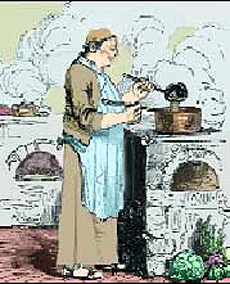
Away in a Manger Christmas Cookies
"We made these super easy Baby Jesus cookies, and I wanted to share them with you. They’re super easy to make, don’t involve any cooking at all, and even kids can make them."
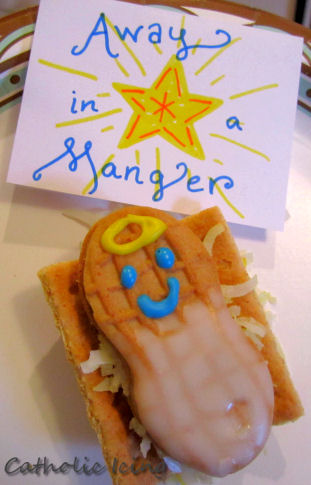
Supplies Needed to make Baby Jesus Cookies:
- Nutter Butter Cookies
- Powdered Sugar
- Little tubes of colored icing
- Coconut
- Yellow food coloring
- Graham crackers (optional)
- Peanut butter (optional)
- Paper plates (optional)
Start by mixing some powdered sugar with water until it’s thicker than whipping cream, but much thinner than conventional icing. (it’s more like a glaze than an icing.) You’ll want to mix it with a mixer to get all the sugar lumps out. I mixed mine in a tall glass (to make dipping easier) and used my hand mixer with only one of the mixer thingies attached.
Dip the Nutter Butter cookies into the frosting, but not all the way. The white part is supposed to look like Baby Jesus’ swaddling clothes, so leave some blank cookie at the top for his head. I set mine on foil to let the icing set, but it would have been better if I had one of those wire rack thingies to let the extra drip off. As I pulled the cookies out of the icing, I scraped the extra off the back on the rim of the cup.
Next, draw on a halo with yellow icing, and a face with blue.
That’s it! Let the icing dry, then serve. I also put some sweetened coconut shreds in a ziplock bag, shook with some yellow food color, and served these on beds of “straw”.
For More information, pictures and how to make the manger go to: Away In The Manger Christmas Cookie


Saint Nicholas
During this time of the year, we in the Church are undergoing our physical, mental, and spiritual preparation for the coming feast of the Nativity of our Lord.
Simply because we have entered into a time of preparation does not mean, however, that the cycle of saints and their feasts is somehow interrupted. To the contrary! For during this time we encounter some of the more well-known feasts of the year. Not the least of these is that of Saint Nicholas the Wonder-worker.
So well-known and well-loved is Saint Nicholas that he has, by turns, become an integral part of the preparation and celebration of the Nativity of our Lord. Strangely enough, even among those who have little more knowledge of Christmas than a vague, secular understanding, you will nevertheless be able to discern yet the presence of Saint Nicholas, though perhaps cloaked under different names. (It is, after all, not hard to see how "Saint Nicholas" is linguistically morphed into "Santa Claus.")
This is only right and just, even though we can certainly hope that Saint Nicholas - by whatever odd name that the profiteers might wish to hang on him - might be relieved of the oftentimes materialistic trappings which society would like to lay upon him so that we can see him more clearly. It is precisely in seeing him all the more clearly that you will understand why even those who refuse to see Christ in Christmas will still be loath to give up their attraction to the spirit of the one time Archbishop of Myra. So, dear soul, in prayer let us hear of the earthly life of our dear saint:
As a rule of faith, an image of meekness and a teacher of temperance the Lord revealed thee to thy flock, in the truth of things; therefore, thou didst attain the heights by humility and riches by poverty. O our father and hierarch Nicholas, entreat Christ our God that our souls be saved. - Troparion of the Feast of Saint Nicholas.
Saint Nicholas, the Wonder-worker, Archbishop of Myra in Lycia is famed as a great saint pleasing unto God.
He was born in the city of Patara in the region of Lycia (on the south coast of the Asia Minor peninsula), and was the only son of pious parents Theophanes and Nonna, who had vowed to dedicate him to God.
As the fruit of the prayer of his childless parents, the infant Nicholas from the very day of his birth revealed to people the light of his future glory as a wonder worker. His mother, Nonna, after giving birth was immediately healed from illness. The newborn infant, while still in the baptismal font, stood on his feet three hours, without support from anyone, thereby honoring the Most Holy Trinity. Saint Nicholas from his infancy began a life of fasting, and on Wednesdays and Fridays he would not accept milk from his mother until after his parents had finished their evening prayers.
From his childhood Nicholas thrived on the study of Divine Scripture; by day he would not leave church, and by night he prayed and read books, making himself a worthy dwelling place for the Holy Spirit. Bishop Nicholas of Patara rejoiced at the spiritual success and deep piety of his nephew. He ordained him a reader, and then elevated Nicholas to the priesthood, making him his assistant and entrusting him to instruct the flock.
In serving the Lord the youth was fervent of spirit, and in his proficiency with questions of faith he was like an Elder, who aroused the wonder and deep respect of believers. Constantly at work and vivacious, in unceasing prayer, the priest Nicholas displayed great kind-heartedness towards the flock, and towards the afflicted who came to him for help, and he distributed all his inheritance to the poor.
There was a certain formerly rich inhabitant of Patara, whom Saint Nicholas saved from great sin. The man had three grown daughters, and in desperation he planned to sell their bodies so they would have money for food. The saint, learning of the man’s poverty and of his wicked intention, secretly visited him one night and threw a sack of gold through the window. With the money the man arranged an honorable marriage for his daughter. Saint Nicholas also provided gold for the other daughters, thereby saving the family from falling into spiritual destruction. In bestowing charity, Saint Nicholas always strove to do this secretly and to conceal his good deeds.
The Bishop of Patara decided to go on pilgrimage to the holy places at Jerusalem, and entrusted the guidance of his flock to Saint Nicholas, who fulfilled this obedience carefully and with love. When the bishop returned, Nicholas asked his blessing for a pilgrimage to the Holy Land. Along the way the saint predicted a storm would arise and threaten the ship. Saint Nicholas saw the devil get on the ship, intending to sink it and kill all the passengers. At the entreaty of the despairing pilgrims, he calmed the waves of the sea by his prayers. Through his prayer a certain sailor of the ship, who had fallen from the mast and was mortally injured was also restored to health.
When he reached the ancient city of Jerusalem and came to Golgotha, Saint Nicholas gave thanks to the Savior. He went to all the holy places, worshiping at each one. One night on Mount Sion, the closed doors of the church opened by themselves for the great pilgrim. Going round the holy places connected with the earthly service of the Son of God, Saint Nicholas decided to withdraw into the desert, but he was stopped by a divine voice urging him to return to his native country. He returned to Lycia, and yearning for a life of quietude, the saint entered into the brotherhood of a monastery named Holy Sion, which had been founded by his uncle. But the Lord again indicated another path for him, “Nicholas, this is not the vineyard where you shall bear fruit for Me. Return to the world, and glorify My Name there.” So he left Patara and went to Myra in Lycia.
Upon the death of Archbishop John, Nicholas was chosen as Bishop of Myra after one of the bishops of the Council said that a new archbishop should be revealed by God, not chosen by men. One of the elder bishops had a vision of a radiant Man, Who told him that the one who came to the church that night and was first to enter should be made archbishop. He would be named Nicholas. The bishop went to the church at night to await Nicholas. The saint, always the first to arrive at church, was stopped by the bishop. “What is your name, child?” he asked. God’s chosen one replied, “My name is Nicholas, Master, and I am your servant.”
After his consecration as archbishop, Saint Nicholas remained a great ascetic, appearing to his flock as an image of gentleness, kindness and love for people.
This was particularly precious for the Lycian Church during the persecution of Christians under the emperor Diocletian (284-305). Bishop Nicholas, locked up in prison together with other Christians for refusing to worship idols, sustained them and exhorted them to endure the fetters, punishment and torture. The Lord preserved him unharmed. Upon the accession of Saint Constantine as emperor, Saint Nicholas was restored to his flock, which joyfully received their guide and intercessor.
Despite his great gentleness of spirit and purity of heart, Saint Nicholas was a zealous and ardent warrior of the Church of Christ. Fighting evil spirits, the saint made the rounds of the pagan temples and shrines in the city of Myra and its surroundings, shattering the idols and turning the temples to dust.
In the year 325 Saint Nicholas was a participant in the First Ecumenical Council. This Council proclaimed the Nicean Symbol of Faith, and he stood up against the heretic Arius with the likes of Pope Saint Sylvester, Saint Alexander of Alexandria, Saint Spyridon of Trimythontos, and other Fathers of the Council.
Saint Nicholas, fired with zeal for the Lord, assailed the heretic Arius with his words, and also struck him upon the face. For this reason, he was deprived of the emblems of his episcopal rank and placed under guard. But several of the holy Fathers had the same vision, seeing the Lord Himself and the Mother of God returning to him the Gospel and omophor. The Fathers of the Council agreed that the audacity of the saint was pleasing to God, and restored the saint to the office of bishop.
Having returned to his own diocese, the saint brought it peace and blessings, sowing the word of Truth, uprooting heresy, nourishing his flock with sound doctrine, and also providing food for their bodies.
Even during his life the saint worked many miracles. One of the greatest was the deliverance from death of three men unjustly condemned by the Governor, who had been bribed. The saint boldly went up to the executioner and took his sword, already suspended over the heads of the condemned. The Governor, denounced by Saint Nicholas for his wrong doing, repented and begged for forgiveness.
Witnessing this remarkable event were three military officers, who were sent to Phrygia by the emperor Constantine to put down a rebellion. They did not suspect that soon they would also be compelled to seek the intercession of Saint Nicholas. Evil men slandered them before the emperor, and the officers were sentenced to death. Appearing to Saint Constantine in a dream, Saint Nicholas called on him to overturn the unjust sentence of the military officers.
He worked many other miracles, and struggled many long years at his labor.
Through the prayers of the saint, the city of Myra was rescued from a terrible famine. He appeared to a certain Italian merchant and left him three gold pieces as a pledge of payment. He requested him to sail to Myra and deliver grain there. More than once, the saint saved those drowning in the sea, and provided release from captivity and imprisonment.
Having reached old age, Saint Nicholas peacefully fell asleep in the Lord. His venerable relics were preserved incorrupt in the local cathedral church and flowed with curative myrrh, from which many received healing. In the year 1087, his relics were transferred to the Italian city of Bari, where they rest even now.
The name of the great saint of God, the hierarch and wonder worker Nicholas, a speedy helper and suppliant for all hastening to him, is famed in every corner of the earth, in many lands and among many peoples. It is impossible to list all the grace filled icons of Saint Nicholas, or to enumerate all his miracles.
Saint Nicholas is the patron of travelers, and we pray to him for deliverance from floods, poverty, or any misfortunes. He has promised to help those who remember his parents, Theophanes and Nonna.
In Myra thou was shown to be a hierarch, O Saint Nicholas; for in the fulfillment of Christ's Gospel thou didst today offer up thy life for thy people, and didst save the innocent from death; therefore, thou was sanctified and was revealed to be a great initiate of the grace of God. - Kontakion of the Feast of Saint Nicholas


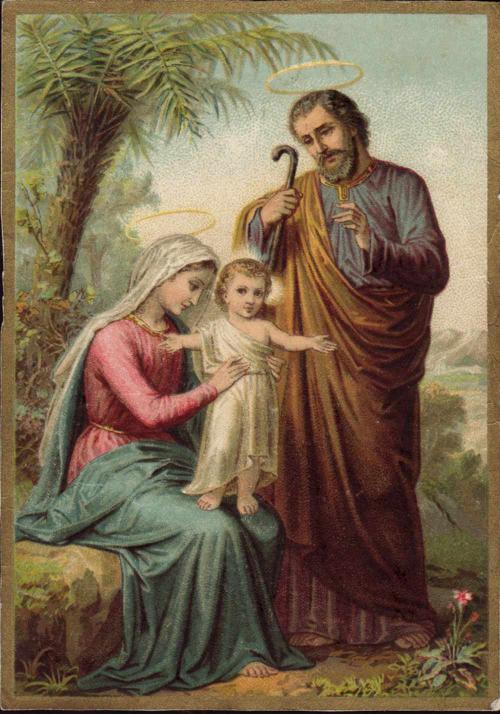
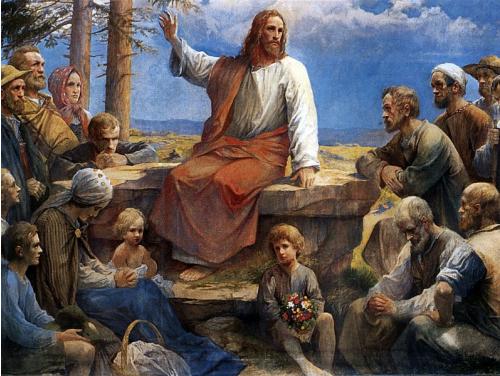


New! VIE Catholic Radio Network
We now have the VIE Catholic Radio Network online.
Is a 100% free internet radio station that depends on the gifts of its listeners. We don’t offer gimmicks or gadgets or promises of wealth and health… just all Catholic based radio, all the time.
It is through donations that The VIE Catholic radio Network can broadcast the Catholic faith to so many listeners around the world.
You can make a special financial contribution to help us at VIE Catholic Radio right now online. just go to the web site ...VIEcatholicradio.com and under the donation tab you can make your online contribution or you can send checks or money orders to the address also given in the VIE Catholic Radio donation tab. We want to say thank you ahead of time for what you are able to give. As Matthew 10:8 says: "Freely have you received, freely give."
The Month of January should bring to all who are interested, An Android app for the radio station. You will be able to find it at "Google Play". Also the IOS App. Which you will find in the ITune store. Both will be free of charge, although we have to pay a monthly fee for providing them.
Not only will you be able to get an app for the phone of your choice, but we are waiting for approval to be heard on TuneInRadio and Streema. Also once we can figure it out, you will be able to listen on Facebook!
We have had people from several countries who have listened and gave us some great feedback! So check it out at VIEcatholicradio.com.

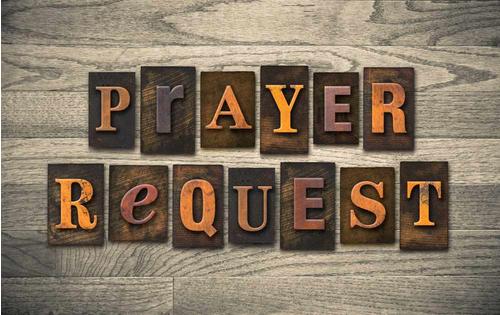
-
Pray for Frater Francis Dominic as he teaches Catechism through the web site. We are still working on our new Website where people can listen or watch Catechism lessons, take tests, and get a certificate of completion. It will take a long time to finish it but you can see the work that we are doing and we will keep you updated on when it is completed. Check out all of the construction going on over there at Traditional Catechism.com
-
God is calling men to come fully into His service with us here at the Vatican in Exile. It will be a life of self sacrifice. And so we ask all to pray for these men, that they will surrender to this calling and also have the fortitude to undertake this sacred calling.
- Please keep the VIE Radio Network in your prayers. It has started off well. Our first week we had people tune in 1400 times.
- Frater Francis has some material needs of his own. He is in need of two Cassocks and a suit. He will be out in the public a lot more visiting hospitals, counseling, Jail visits, doing funerals and weddings etc.
- Keep His Holiness also in your prayers. He has taken on a three day job helping a lady with disability by cooking for her and taking her to her doctors and the grocery store. The extra money is such a blessing. But the reality is that there are many who could be giving at least $10.00 a month to support the Church and are not giving. We are thankful for Gods provisions but pray that the people of God will start supporting the Church. Thank God for the faithful who do.
So as we say every month we are very close with our budget. It takes money to be available to people in other areas as well as having supplies like rosaries, bibles, pamphlets, Catechisms etc. for sharing with Non Catholics. At this time to stay comfortably out of the red we need 700.00 a month. Please read the message Giving to God's Work and then decide how you can give. Everyone should give something. It does not have to be much.


To Donate online go to:

To Donate by Mail:
Our address is
Vatican in Exile
829 NE Chester
Topeka, Kansas 66616
Make Checks payable to:
Vatican in Exile




 Follow
Follow


